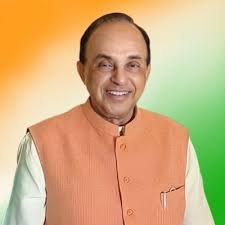Rafale revelations: Swamy, silence and the sinking credibility of BJP
A senior leader’s allegations about Rafale jets and India’s aerial combat losses expose the Modi government’s double standards in silencing dissent and shielding corruption
THE FOUR-DAY WAR
May 31, 2025
IN the often combustible world of Indian politics, truth is rarely a straightforward affair. But when a veteran politician from within the ruling party drops a bombshell on national defence and corruption, one would expect the government machinery to swiftly react. Yet, in the case of Bharatiya Janata Party (BJP) leader Subramaniam Swamy’s recent interview, silence has been the loudest response.
Swamy, a former Union Minister and long-time member of the BJP, has openly admitted that India lost five aircraft in a recent confrontation with Pakistan — a claim that had long been suspected but never officially confirmed. Even more damning, Swamy alleged that the French-built Rafale fighter jets used by Indian pilots were markedly inferior to the aircraft flown by their Pakistani counterparts.
His assertion goes further: that the Rafale deal was mired in corruption, and that no investigation can be initiated currently because the alleged prime culprit is none other than Prime Minister Narendra Modi himself.
It is not just the content of Swamy’s statements that is significant, but the reaction — or glaring lack thereof — from his party. No BJP spokesperson has stepped forward to rebut the claims. No legal case has been filed against him. No trolls have descended to brand him a “traitor”, “anti-national” or “agent of Pakistan”.
This is in stark contrast to how opposition leaders, particularly Rahul Gandhi of the Congress party, are treated for far less incendiary remarks. When Gandhi questioned how many Indian aircraft had been downed by the Pakistan Air Force during a military confrontation early on May 7, the BJP’s reaction was swift and vicious. He was immediately cast as a sympathiser of the Pakistani establishment.
Online propaganda likened him to Field Marshal General Syed Asim Munir, Pakistan’s army chief. The BJP’s digital arsenal, infamous for its vitriolic campaigns, unleashed a storm of abuse. Gandhi was accused of undermining the morale of the Indian armed forces and betraying national interests.
Why the double standards?
It appears that within the current Indian political landscape, allegiance to truth is far less important than loyalty to the ruling dispensation. When a senior leader from within the BJP breaks ranks, the party conveniently chooses discretion over confrontation — perhaps to avoid giving oxygen to an already damaging narrative.
Swamy is no political lightweight. A Harvard-trained economist with decades of public life behind him, he commands attention. Ignoring him might be a deliberate strategy to contain the fallout.
But the implications of his statements are profound. The Rafale deal was once touted as a hallmark of Modi’s decisive governance — a symbol of modernisation and strength. Yet, if corruption indeed taints this multibillion-dollar defence procurement, it raises grave concerns not just about the integrity of the prime minister, but also about the safety and preparedness of India’s armed forces.
Moreover, the lopsided treatment of criticism reveals the growing intolerance for dissent in India’s democratic framework. If a ruling party member is free to accuse the prime minister of corruption without consequence, while an opposition leader is vilified for asking a question, we must ask ourselves what kind of democracy India is becoming. Is the right to question the government now reserved only for those who sit within its fold?
As India moves deeper into an era where spin trumps substance and branding outweighs accountability, one thing remains clear: real patriotism lies in questioning power, not worshipping it.
